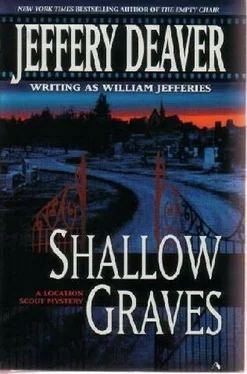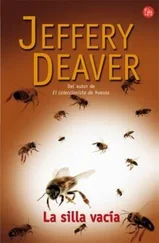"I'm not going to let that happen!" Keith's voice jarred in the room, a sound to match the glare of light. "You're my wife. You're staying with me. In six months, I'll have the patent and I'll stop selling on the street. We'll get a license from Pfizer or Merck. We'll tell the state police the twins tried to break in and rape you. Tom was here about Sam and they killed him. We can say-"
"No more." Her eyes closed and her head moved back and forth slowly. "No more." She stood up. "We're not staying here tonight."
"Meg, no." He wasn't a boy any longer. He was mean, dark, brooding.
Their words swirled around Pellam. As they talked, husband and wife, he heard what they said and he observed their expressions but it was from a distance.
Here you come, with your van and your camera, studying the town, talking to people, getting to know everyone… Getting to know some of them very well. You don't understand the power you've got.
But no, he thought, I have no power. Nothing he could say or do could teach them about happiness and lift them out of the ruts they'd fallen into. He made movies. He helped people escape from their lives, sure, but only for two hours and only in that one special place: a darkened movie theater. "I'm leaving now."
Keith focused on Pellam, said to him, "You mention this to anyone, I guess you can figure out what'll happen to them." He nodded toward Meg.
"What are you saying, Keith?" she asked.
Pellam said, "He's saying that if I go to the police, even if he beats the murder charges, there'll be a RICO case against him. The U.S. attorney'll close up the factory and take the house and your savings."
Keith nodded. "That'll be on your conscience."
Pellam laughed, said nothing. He looked at Meg. "You want a ride someplace? Family or friends nearby?"
Keith said, "She's not coming with you."
"That's not your decision."
Meg said to Pellam, "Let me get Sam."
Keith said, "Meg, you're my wife! You-"
"Stop it!" she screamed. Keith the boy, Keith the man stopped speaking. "You don't own me. I'm leaving!"
Pellam sensed it then. In an intuitive flash, he knew.
A combination of things told him-the peripheral sight of Keith reaching for his waistband, his gasping breath, the click of spring metal.
The sound of a gun cocking-Bobby's, of course, which Pellam had forgotten about, left lying under the twin's body on the front porch. Keith had retrieved it on his way inside the house.
The click that was almost hidden by a rising shout, a single word.
One word-his own name-filling the night, as Keith shoved the gun toward him and wailed in primitive rage, "Pellam!"
"No, Keith!" Meg cried.
Pellam's left hand shot forward in a futile, automatic gesture to ward off the scalding bullet.
A ringing explosion. The muzzle blast struck him in the face and hand.
Meg screamed, "John!"
They froze, like children playing the game of statue. Three of them.
There was an endless moment of silence, the sweet piquancy of smoke filling the room.
The gun fell from Keith's hand to the floor and with a wail of anguish he dropped to his knees.
Pellam, waiting for the pain, the blackness, the crawl of blood, stood completely still.
Nothing. He was unhurt.
The man had missed. From fifteen feet away Keith had missed.
He whispered to Meg, "It's all right, I'm okay."
She was shaking her head. "What'm I going to do about this?"
"What?" Pellam asked.
Meg didn't answer. Her head was lowered in concentration, frowning as she studied the diamonds on her finger. "Look at this ring. Look at it. What a mess."
Meg held up her hand, covered with the blood that spread from the front of her blouse. "Can you help me? I'll never get it clean." Her smile faded. Her eyes fluttered closed. "Can you help me," she whispered as she spiraled slowly to the floor. "Can you?"
Trudie, tanned and dark-haired and model-thin (the best calves of any women he'd ever known but, alas, no freckles anywhere on her body), drove east on Santa Monica, moving slowly in the morning traffic toward the expressway.
John Pellam sat on the passenger side of her white Mercedes 450 SL.
He sat silently, with his suitcase (purchased on Main Street, Cleary, not Rodeo Drive) on his lap. Trudie was animated. She was preoccupied with a teleplay Lorimar was kicking around. She had a fifty-two percent interest in the property. He thought that's what she'd told him. The radio was loud and she nodded in time to the beat, smiling broadly, though Pellam knew that what she hummed was the tune of business, not a Top 40 hit.
Pellam thought she was a wonderful woman. He'd enjoyed going out with her. He'd enjoyed staying with her, lying in a huge bed, sipping sweet liquor drinks on a cement patio high above a junglish canyon (Trudie had a fall-er house).
They passed the park in Beverly Hills where one morning-must have been five a.m.-he'd found Tommy Bernstein, in a tuxedo, passed out. Pellam himself had been wasted. Tommy had said to him, "Fuck, it's the U.S. Cavalry. Get me home. Am I in bed? I don't think so, no, I don't. Get me home!"
After much time and effort Pellam had.
At Tommy's funeral the minister had been a hired gun, which wasn't too surprising, since Tommy hadn't been inside a church in thirty years. The somber man said a lot of innocuous things. Generic-brand sentiments. Not to put that down, of course. Pellam thought the doughy old guy with the stiff white collar had done a good job, under the circumstances. "The lively spirit that Thomas had, the spirit that touched us all with the love for the characters he played…" Well, Tommy'd have said, "Barf on that," and howled. But that was hardly the minister's fault. The funeral had been near the intersection they were passing through just then. Avenue of the Stars.
"I talked to that exec producer."
Trudie liked that, shortening words and slinging them around. Exec, photog, res, as in Make a res at a restaurant.
"Yeah?" he asked brightly.
"He was like beside himself."
"Yeah?" Pellam couldn't remember exactly which exec she was talking about, or why he was, or should be, beside himself. They drove in silence, through that brilliant light, California light, that seems to bring out some essential radiation from the grass and trees. It gets right in your face, like a beautiful, obnoxious teenage girl. From behind his sunglasses Pellam watched the scenery. And the cars-a thousand German cars, it seemed-moving opposite, toward Hollywood.
"Won't be back for a while, huh?"
"Probably not."
Trudie didn't answer, just squeezed his knee. She turned the radio up. They were in Beverly Hills; sentiment didn't exist.
"So," she said. "You sure you want to do this?"
"Yep," he said and didn't add anything else.
Ten silent minutes later she dropped him at the airport. He didn't want or expect her to get out. They kissed like siblings and the only clues to the deepest moments of their on-again, off-again year together was a shallow shaking of her head and the sad, mystified smile she lapsed into from time to time.
"Call me sometime," she said.
Pellam promised that he would.
He handed his suitcase to the curbside check-in attendant, and when he turned back, Trudie was gone.
John Pellam sat on a hundred-year-old gravestone, looking out over this upstate New York valley, filled with trees gone to vibrant yellow red. The sun had just disappeared under a row of clouds and the beautiful scenery had taken on an ominous nature.
Adding to which was the young man moving stealthily toward Pellam. He was dressed in a dark shirt and jeans. When he was twenty feet away the man paused and closed his eyes, as if finding strength from somewhere, then drew a black pistol from his back pocket.
Читать дальше












